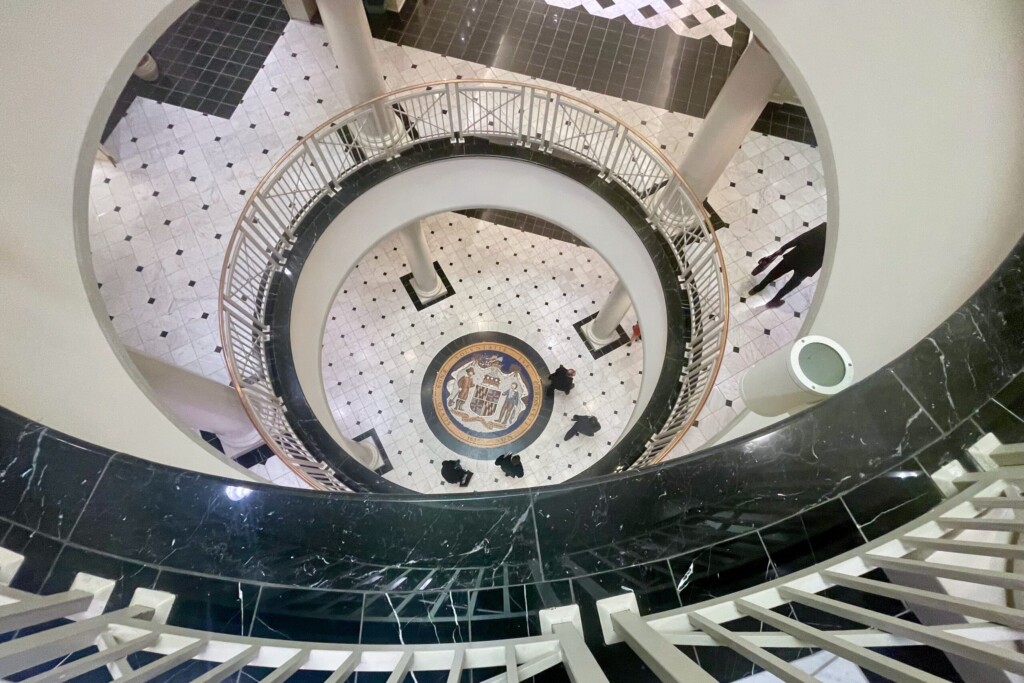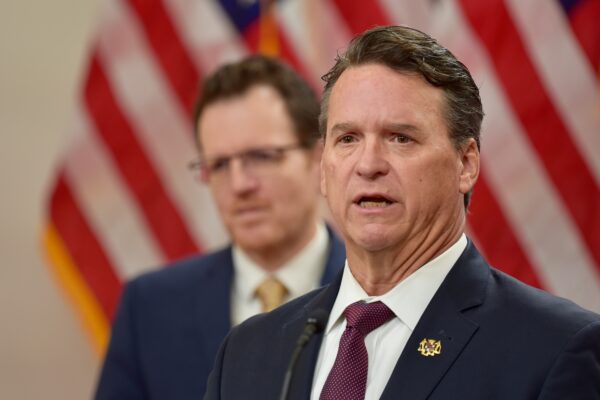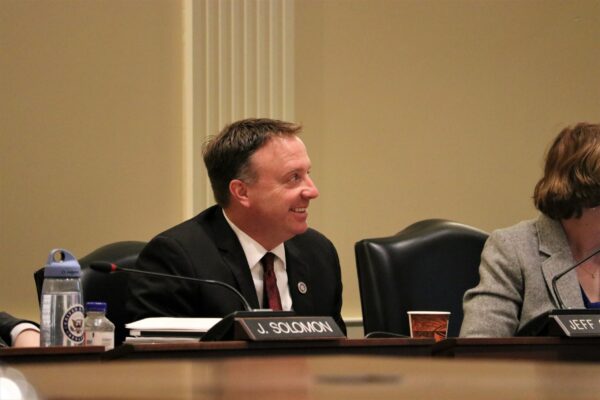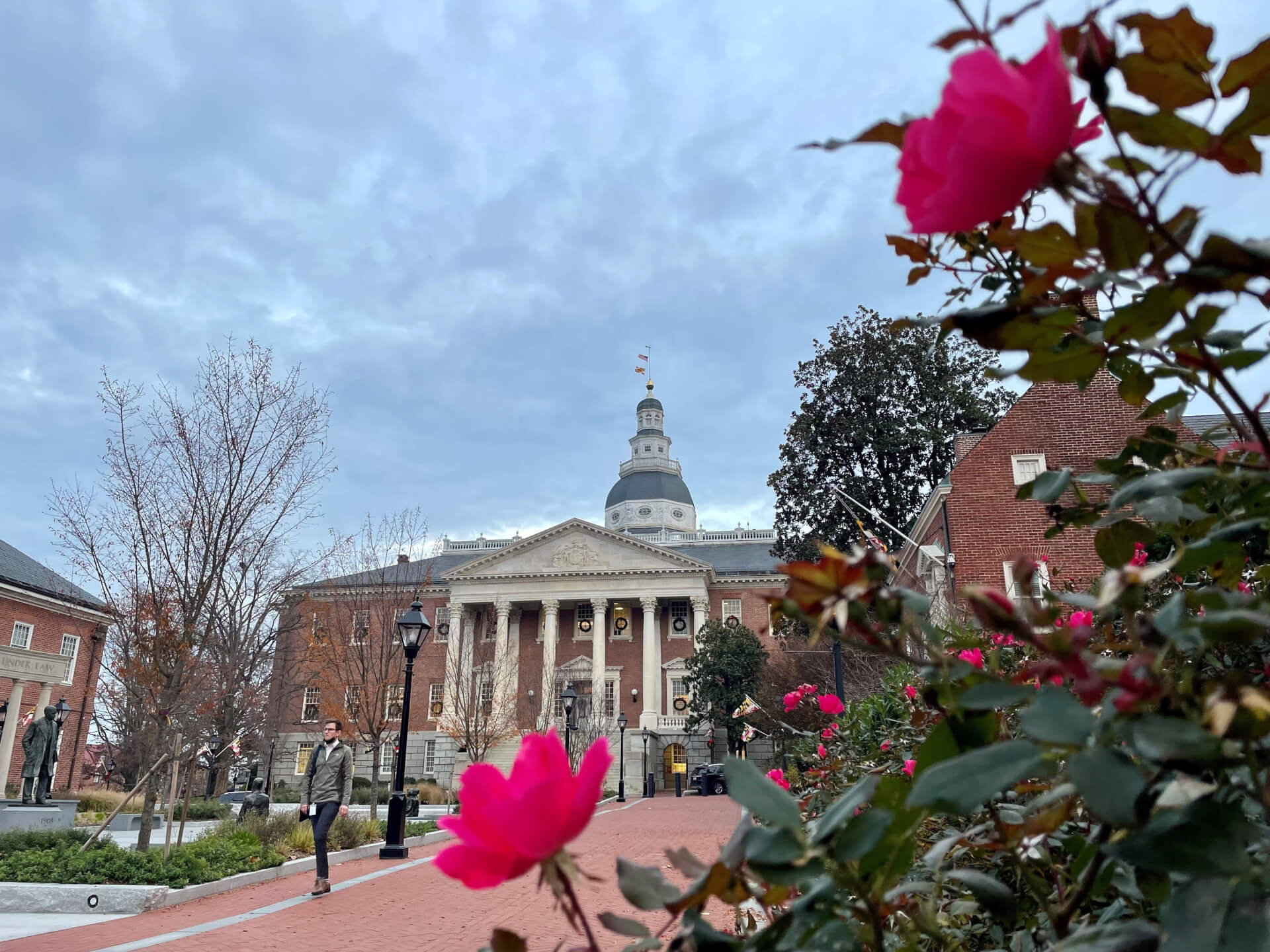House, Senate send $63 billion budget to governor

The House and Senate gave final approval to a $63 billion budget and companion budget reconciliation bill Friday, a move that sends both measures to Gov. Wes Moore (D).
The votes wrapped up a week of back and forth between the two chambers but ended with Republican opposition to hundreds of millions in tax and fee increases. Votes in the House highlighted the politically tricky nature of some bills as more than a half-dozen lawmakers voted on the budget but missed another on legislation containing the revenue package.
The Senate passed the budget bill by a 44-0 vote. Republicans then broke from their Democratic colleagues to vote against the companion reconciliation bill, which contains increased vehicle registration fees and tobacco taxes.
The bill did not include most of a $1.2 billion revenue package proposed by the House, including combined corporate tax reporting and iGaming. Senate Minority Leader Stephen S. Hershey Jr. (R-Upper Shore) applauded the pared down revenue package.

Senate Minority Leader Sen. Stephen S. Hershey Jr. (R-Upper Shore). Photo by Bryan P. Sears.
“As many know when we started this negotiation with the House, we were over a billion dollars apart,” he said. “The Senate stood their ground and came up with a budget that works for all of Marylanders and was able to take care of a lot of the priorities that we have.”
Hershey, the only Republican to speak on the reconciliation bill, said he could not vote for it because of concerns that money for transit projects was funded “on the backs of motorists.”
The Senate approved the conference committee compromise on the reconciliation bill by a vote of 33-11, mostly along party lines. Only Sen. Chris West (R-Baltimore County) joined Democrats. Another Republican, Sen. Johnny Ray Salling (R-Baltimore County) was absent and back in his district as President Biden visited the site of the Francis Scott Key Bridge collapse.
The House voted 124-9 with no debate to approve the budget bill compromise. All nine dissenting votes were Republicans. Five are part of a conservative Republican delegate slate called Marylanders United.
Del. Robert B. Long (R-Baltimore County) was present but failed to vote on the budget. He did vote later on the companion reconciliation bill.
As in the Senate, House Republicans expressed displeasure with the companion budget reconciliation bill and its included tax and fee package.
Del. Matthew Morgan (R-St. Mary’s) questioned the “intellectual honesty” of those who voted for the budget but not for the Budget Reconciliation and Financing Act.
“I plan to vote no on this. I’m sure that comes as no shocking surprise. I voted no on the budget,” said Morgan, who is chair of the Marylanders United campaign slate. “And the reconciliation bill always balances the budget. So to me, if you’re going vote yes on the budget and no on the BRFA, well, that’s a lot like going to a restaurant, ordering the meal, eating it and then not paying for it.”

Del. Jefferson L. Ghrist (R-Upper Shore). Photo by Danielle E. Gaines.
Del. Jefferson L. Ghrist (R-Upper Shore), a member of the House Appropriations Committee, pushed back against assertions that Republicans who voted for one and not the other were intellectually dishonest.
Ghrist, who voted for the budget bill, said he opposed the reconciliation bill because it contained “increases in taxes and fees that do not balance this budget.”
The House voted to approve the reconciliation bill 90-35.
The vote highlighted the politically tricky nature of budget voting.
Del. Sheree Sample-Hughes (D-Lower Shore) joined 34 Republicans in voting against the reconciliation bill. Sample-Hughes, who represents a majority Black district on the Eastern Shore, has joined Republicans in opposition to other bills including the Gun Safety Act of 2023 and the Trans Health Equity Act.
Nine others failed to cast any vote on the reconciliation bill despite having voted on the budget bill roughly 10 minutes earlier.
House rules require delegates who are on the floor and in their seats to vote on bills as they come up. Earlier in the same floor session, House Majority Whip Jazz Lewis (D-Prince George’s) reminded delegates of the rule, as he has frequently during the previous 85 days of the legislative session.
Eight of those are Democrats who did not vote for the reconciliation bill represent potential swing districts: Dels. Brooke Grossman (Washington), Chao Wu and Natalie Ziegler (Howard and Montgomery), Gary Simmons and Heather Bagnall (Anne Arundel), Brian M. Crosby (St. Mary’s), and Andre V. Johnson Jr. and Steve Johnson (Harford).
Del. Carl L. Anderton Jr. (R-Lower Shore) also failed to vote on the bill. Anderton represents a district where a Republican primary challenge from a more conservative opponent is always possible.




 Creative Commons Attribution
Creative Commons Attribution